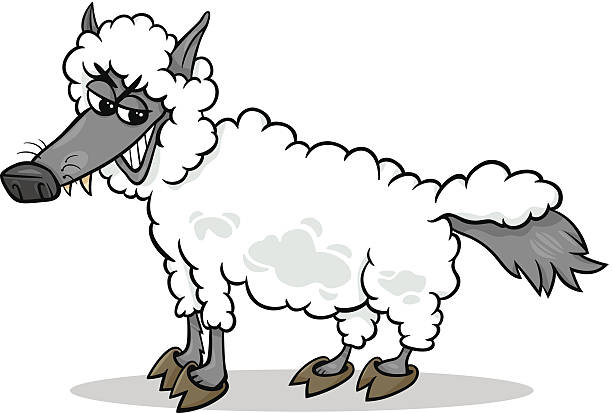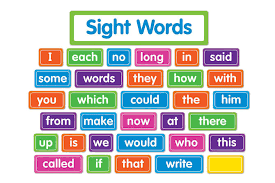Words alone do not have a definite meaning. It is necessary to make the sentences engaging. The best examples of these are idioms.
This article will tell you more about commonly used idioms in daily lives.
What is a Phrase?
Firstly, let’s talk about a phrase.
A phrase is a set of words that act as a unit. Phrases consist of a single word/several words in a sentence. There are different types of phrases. For example – noun phrase, adjective phrase, prepositional phrase, the gerund phrase, infinitive phrase etc.
What is an Idiom?
In English, idioms are a type of figurative language. You can not rely only on the words to tell you what they mean, because generally, they have a meaning different from the literal meaning of the individual words.
Difference between Idioms and Phrases
People generally confuse the two terms. Before you start learning how to use idioms, it is essential to understand the difference between the two.
- In grammatical terms, a phrase is a group of words having a definite meaning. An idiom is an expression of words that mean something completely different from the literal saying.
- Furthermore, unlike idioms, phrases can be taken literally. The meaning of idioms is figurative. Idioms are also known as colloquial metaphors.
- Another noteworthy difference is that the words in a phrase collectively act as a single unit of speech.
Comparison Table Between Phrase and Idiom
Parameters of Comparison Phrase Idiom
| Parameters of Comparison | Idiom | Phrase |
| Definition | Set of words or a word | Set of words |
| Meanings | Figurative in meaning | Literal in meaning |
| Interchangeability | All Idioms are phrases | All phrases are not idioms |
| Examples | Burn the midnight oil | The glass was on the table |
Why do you use Idioms?
A question for all of you. Why do logical humans use idioms? Why do we use words that mean something different from their literal meaning?
Experts suggest that instead of only using logical words and phrases. Humans also use expressions as they like to paint a picture with our words. It creates vivid mental images that make it easier to convey ideas and thoughts. Therefore, our language and communication becomes more robust and may last longer in a person’s mind.
How should you use Idioms?
Idioms can be a powerful device when used correctly. They effortlessly make your writing sound more conversational. Furthermore, they can also help add emphasis to vital points.
If you struggle with creating blog posts or writing less technical emails, all you need to do is throw in an idiom or two. They can also add emphasis to essential points. Fiction writers use idioms to add personality to a characters’ voice.
When do you use Idioms?
1. Avoid idioms in technical or formal writing, as they are not precise and leave a lot of room for misunderstandings.
2. Unlike metaphors, analogies or proverbs, idioms have less literal or easy to deduce meaning.
3. Euphemisms, a type of idiom are used to address more sensitive or taboo topics. Thus, they are not used in general conversation.
4. Lastly, idioms can become clichés if they are overused. Therefore, use idioms sparingly but effectively in your writing.
The importance of using Idioms
1. Idioms provide you with a way to express yourself.
Idioms give people a great way to convey their thoughts in a specific context. For example, when someone says ‘break a leg’, they do not mean it literally. Instead, it is said to wish someone good luck.
2. Idioms can help people in ESL schools express themselves more creatively during a conversation
For people whose first language is not English, idioms provide a new and creative way to express themself. Furthermore, idioms can also be quite humorous. Thus, you can use them efficiently to show your personality and sense of humour.
3. Understanding and using idioms can help boost conversational skills.
Idioms help improve conversational skills as an individual can prove to the native speakers that you understand the cultural meaning and context. Thus, you may feel more confident and comfortable during conversations. Additionally, you will also sound more like a native speaker. In addition, learning idioms will help you gain a deeper understanding of the language in a more meaningful way.
25 Commonly used Idioms and their Origins
1. White Elephant
Meaning:
A term that means something that is not quite useful and often has a very high cost of maintenance.
Origin:
In the ancient kingdom of Siam or modern-day Thailand, the King would give white elephants to people who he disliked. Although this gift seems kind, in actuality it was expensive and difficult to take care of.
2. Fly off the handle

Meaning:
This idiom means to lose one’s temper unexpectedly.
Origin:
The phrase was first utilized in the early 1800s. It refers to the uncontrolled way a loose axehead would fly off of its handle when swung.
3. Close but no cigar
Meaning:
This term means someone/something that has fallen just short of a successful outcome.
Origin:
The idiom arose from the carnival games at American fairgrounds. These games would have cigars as prizes and when someone lost by a close margin, they would be close but not get a cigar.
4. Give the cold shoulder

Meaning:
This commonly used idiom means to ignore someone. People generally use it to make it clear that the person is not welcome.
Origin:
In medieval England, dinner hosts gave guests a piece of cold shoulder meat to indicate that it was time to leave.
5. Let the cat out of the bag

Meaning:
To reveal a secret.
Origin:
This one came from centuries ago when street vendors use to sell piglets in bags. However, sometimes they would deceive the customer and replace the piglet with a cat. The buyer wouldn’t know about this till the purchase was complete and the secret was out.
6. Heard it through the grapevine
Meaning:
Another commonly used idiom. This means to hear or learn something new.
Origin:
The origin of this idiom dates back to the time of telegraphs. Many people thought that the wires of a telegraph resembled a grapevine, thus, whenever they received a new message, they would say that they heard it through the grapevine.
7. An arm and a leg
Meaning:
This phrase refers to spending an amount of money on something.
Origin:
the origin of this idiom is uncertain. Experts are unsure of whether it arose when soldiers were losing limbs defending their country in WWI and WWII, or during the time when oil paintings were popular. Oil painters charged based on the size of the painting, thus it was more expensive to include your arms and legs. Therefore, most people preferred to include just their heads and shoulders.
8. Hands down
Meaning:
This term means decisively or easily without question.
Origin:
This one comes from horse racing and refers to the hold a jockey has on the horse’s reins. If the horse is far ahead, thus first in the race, the jockey can loosen his grip on the reins, therefore winning ‘hands down’.
9. Riding shotgun

Meaning:
This is a phrase known to us all. If you have ever yelled ‘shotgun’ while approaching a car then you probably already know what this means. Riding shotgun refers to riding in the civeted front seat, right next to the driver.
Origin:
The origin of this idiom is not as fun and happy as its meaning. It refers to the position next to a stagecoach driver, where a guard armed with a shotgun sat to ward off bandits.
10. Bite the bullet

Meaning:
The phrase means to decide to do something unpleasant or difficult that you have been putting off.
Origin:
During the war, injured soldiers would bite down on a bullet before surgery or amputation to keep themselves from biting their tounges.
11. Cut to the chase
Meaning:
This idiom is used when you want someone to get to the point.
Origin:
In the early days of silent film, the most enjoyable parts were those that had a chase, whether on foot or horseback. Another interesting scene was one showing the deception of some sort. Cut to the chase was used by the filmmakers when they wanted to hear or see the more interesting parts of a movie.
12. Pass with flying colours

Meaning:
To succeed at a difficult task with ease.
Origin:
The idiom arose after warships in the 1600s flew coloured flags after victory. Thus, people always knew that the ship won a battle at sea when they saw the coloured flag.
13. Learn the ropes

Meaning:
People use the phrase when someone is trained or is learning to do a particular task or job.
Origin:
This is another one that has a nautical reference. New recruits on 17th-century ships had to learn how to move the sails using a rope.
14. Barking up the wrong tree
Meaning:
This refers to pursuing a mistaken line of thought or action.
Origin:
In the early days, hunting with packs of dogs was very common. These dogs often chased small animals up trees. However, they would not realize that the animals had jumped over to the next tree. Thus, they found themselves barking up the wrong tree.
15. Steal someone’s thunder
Meaning:
To upstage someone and grab the attention or praise from them.
Origin:
This idiom originated due to the actions surrounding the playwright John Dennis. In the early 1700s, he invented a new method for reproducing the sound of thunder for his new production. However, his play failed and was cancelled. Later, Dennis found out that his sound was used in the play, Macbeth. The outraged playwright then said “Damn them! They will not let my play run, but they steal my thunder.”
16. Straight from the horse’s mouth
Meaning:
The idiom refers to someone getting information straight from the most trustworthy source
Origin:
This one comes from the 1900s, from when buyers would estimate the age of a horse by looking at its teeth. This is also where the idiom “look a gift horse in the mouth,” arose from as it was considered bad etiquette to inspect a gift.
17. Butter someone up
Meaning:
To flatter someone to gain a favour
Origin:
India has a custom that involves throwing butter balls at the statues of gods to gain their favour and seek good fortune.
18. Wolf in sheep’s clothing

Meaning:
This phrase refers to someone who is pretending to be something they are not.
Origin:
The idiom came from the Bible verse Matthew 7:15. The Bible also gave us ‘seeing eye to eye’ from the verse Isaiah 62:8, ‘rise and shine’ from Isaiah 60:1, as well as a ‘broken heart’, which is from Psalm 69:20.
19. Dish fit for the gods
Meaning:
The term means a very scrumptious meal
Origin:
Shakespear is the one that came up with this expression. He used it in Julius Caesar. In addition to this idiom, he also gave us ‘hot blooded’, ‘foaming at the mouth’, ‘in stitches’, ‘wearing your heart on your sleeve’, ‘green-eyed monster’, and ‘one fell swoop.’
20. Don’t throw the baby out with the bathwater

Meaning:
The idiom means to look for errors in a task so that you do not have to remove something good with the bad.
Origin:
This idiom comes from a time when the entire family bathed in the same water. Firstly, the lord would bathe, then other men in the family, the lady, other women in the family, the children, and lastly the babies last. In the end, the bathwater is said to have been so dirty that there was the risk of throwing the baby along the water once done.
21. Jump the shark
Meaning:
This refers to the moment when a play, tv show or other form of entertainment reaches a decline in quality due to the use of gimmicks to maintain the audience’s interest.
Origin:
In the show Happy Days, Fonzie jumps over a shark while water skiing. Following this, radio personality Jon Hein popularized the phrase “jump the shark” to depict the downfall of the show.
22. Minding your Ps and Qs
Meaning:
Refers to being on your best behaviour
Origin:
There are several origin stories for this one. The most interesting one is when bartenders would use P and Q to keep track of the pints and quarts consumed.
23. Turn a blind eye

Meaning:
The phrase means to consciously ignore undesirable information
Origin:
The phrase originated with Admiral Horatio Nelson, who looked through his telescope using his blind eye to avoid signs from his superior telling him to withdraw from battle.
24. Armed to the teeth
Meaning:
This idiom means to be extremely well equipped
Origin:
The idiom comes from when a weapon wielder would carry the maximum number of weapons. Thus, they would be forced to carry some between the teeth.
25. Get one’s goat
Meaning:
Means to irritate or annoy someone
Origin:
Another one comes from horseback riding. Jockeys kept goats in the stables with their horses as it was said to relax them. However, competitors would steal the goats of their rivals to spook their horses, thus hoping they would lose the race.
Conclusion
English idioms are an essential part of everyday communication. They come up all the time in both spoken as well as written English. As idioms don’t have a literal meaning, you will need to acquaint yourself with the meaning and usage of each idiom. Although it may feel like a lot of work, learning idioms is actually quite fun.
FAQs
1. Is copycat an idiom?
Yes, a copycat is an idiom. It means a person who copies or impersonates someone else. A copycat may copy the words, actions or behaviour of another.
2. How are idioms created?
Idioms have several origin stories, but the biggest contributor is figurative language, particularly metaphors. When a metaphor was first used, people found it fresh and vivid. Similarly, people were excited to use idioms as they had to think through the image to appreciate what it conveys.
3. How do you recognise an idiomatic expression?
An idiomatic expression is an informal language with meaning different from that of the rest of the words in the expression. For example, the expression ‘Hold your tongue’ doesn’t mean that you grab a hold of your tongue. Instead, it means to remain silent.
4. What are the different types of idioms?
According to Palmer’s Semantic: A New Outline published in 1976, idioms could be divided into three types. Firstly, phrasal verbs, secondly prepositional verbs, and lastly partial idiom.
5. What are the characteristics of idioms?
An idiom is a phrase that presents a figurative, non-literal meaning. In addition, an idiom’s figurative meaning is different from its literal one.
6. Are idioms the same as Proverbs?
https://www.youtube.com/embed/4JJg_FWMlNg?feature=oembedSimile vs Metaphor vs Idiom vs proverb
No idioms and proverbs are not the same. Given below are the differences between them.
1. An idiom is a phrase that contains a non-literal meaning that can not be understood in layman’s language. A proverb on the other hand is defined as a well-known sentence used to advise another person. Additionally, a proverb has a literal meaning that applies in different stages of life.
3. Idioms are mainly used in poetry, while proverbs are used in daily lives.
4. Idioms express an idea or thought. People use proverbs to give suggestions to other people.
7. How are an idiom and a metaphor different?
A metaphor refers to a word or phrase applied to an object, but that is not literally applicable. The difference between the two lies in the fact that an idiom is a phrase used to describe a situation, while a metaphor is an indirect comparison to describe something. A
8. What is the difference between an idiom and hyperbole?
Hyperboles are exaggerated statements made by the author not meant to be understood literally, whereas idioms are popular phrases that do not have a literal meaning
9. Is it’s ‘raining cats and dogs’ an idiom or hyperbole?
“It’s raining cats and dogs” is not hyperbole. Instead, it is an idiomatic expression.
10. What idiom is given for heart?
The idiom ‘Cross One’s Heart and Hope to Die,’ is commonly used by children. It means to promise someone that what they are saying is true.
11. What are the type of phrases (with examples)?
1. Noun Phrase
A noun phrase functions just like any other noun in the sentence. All other determiners modify that particular noun phrase.
For example, ‘Friday became a cool, wet afternoon.’
2. Verb phrase
A verb phrase contains at least one verb and its dependents, including complements, objects and modifiers. However, it does not always include a subject.
for example, ‘Mary might have been waiting outside for you’.
For example, ‘Eating ice cream during a heatwave can be a good way to cool off.’
A gerund phrase contains a gerund or other modifiers as well as objects associated with it.
This refers to a group of words that uses an infinitive, that is, ‘to’+verb.
For example, ‘She helped to construct the roof.’
A phrase that begins with a preposition and ends in a noun, noun phrase or pronoun is called a prepositional phrase.
For example, ‘In the kitchen, you will find my mom.’
Share with your friends






